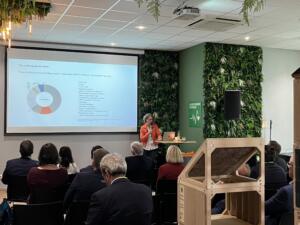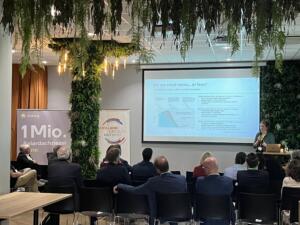Dutch-German Symposium on Sustainable and Circular Buildings and Infrastructure
October 07, 2024
On September 25th, the Dutch-German Symposium on Sustainable and Circular Buildings and Infrastructure took place at the Social Impact Factory in Utrecht. The event gathered experts, companies, and policymakers from both nations to explore partnerships and advance collaboration in sustainable construction.
Organised by PSPS Business Abroad and Holland Circular Hotspot on behalf of the German Federal Ministry for Economic Affairs and Climate Action, the symposium served as a key platform for knowledge sharing, business matchmaking, and discussions on future trends in circular construction
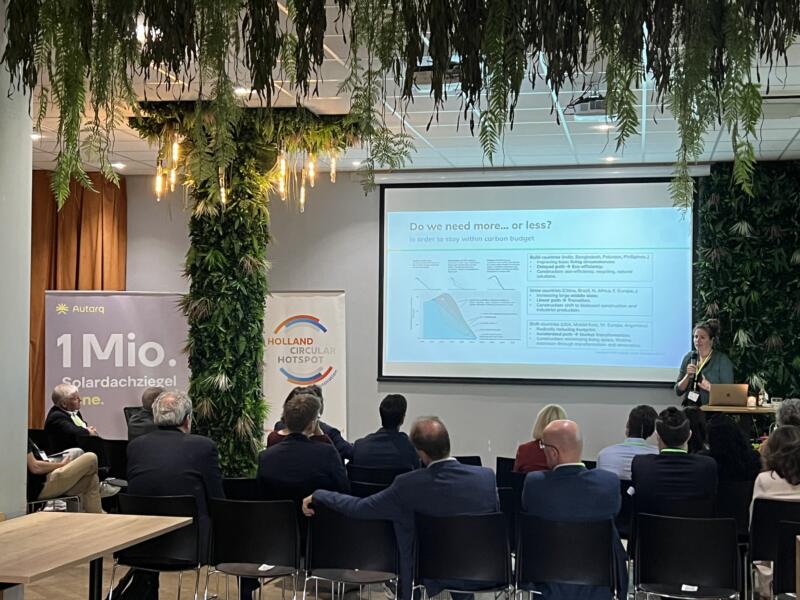
By fostering cross-border partnerships, this event marks a significant step towards achieving the 2050 climate goals for both Germany and the Netherlands
Spokesperson for the German Federal Ministry.Strengthening Dutch-German ties in circular economy
The symposium attracted diverse participants, including 10 prominent German companies keen to establish partnerships with Dutch counterparts. With a mutual focus on fostering sustainable building practices, the symposium provided space for companies to engage in meaningful discussions on technology and innovation in the infrastructure sector. These discussions were facilitated through interactive matchmaking sessions with companies such as Autarq, ECODRY, ELA Container, H-Aero, Heine Ingenieure, MIG mbH, Nesseler Bau, and PMF Housing.
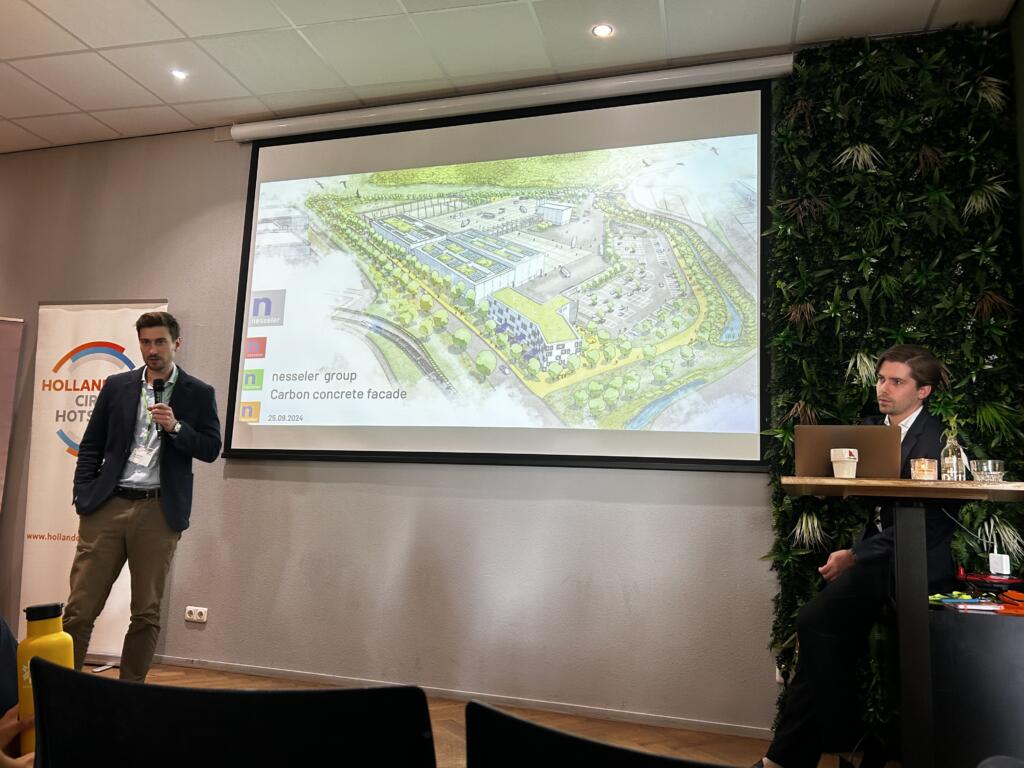
These sessions were complemented by expert lectures from industry leaders across both nations, delving into the latest trends and advancements in circular economy principles.
The session moderated by our HCH Director Freek van Eijk, kicked off with Cécile C. van Oppen, Co-Founder of Copper8, opening the event with a comprehensive overview of market trends, highlighting practical examples of circular practices. She emphasised the need for cooperation across different sectors to implement sustainable solutions. Arnoud Passenier from the Dutch Ministry of Infrastructure and Water Management followed with a discussion on the critical role of government in facilitating the transition to a circular construction economy.
Other prominent speakers included Joan Prummel, International Circular Economy Advisor at Rijkswaterstaat, who led a session on circular procurement strategies, illustrating how public and private sectors can work together to create markets for circular products and services. Robert Dijksterhuis, Envoy for Sustainable Building at the Ministry of Housing and Spatial Planning, underscored the importance of aligning policies at both national and EU levels to support the circular economy, particularly within the built environment.
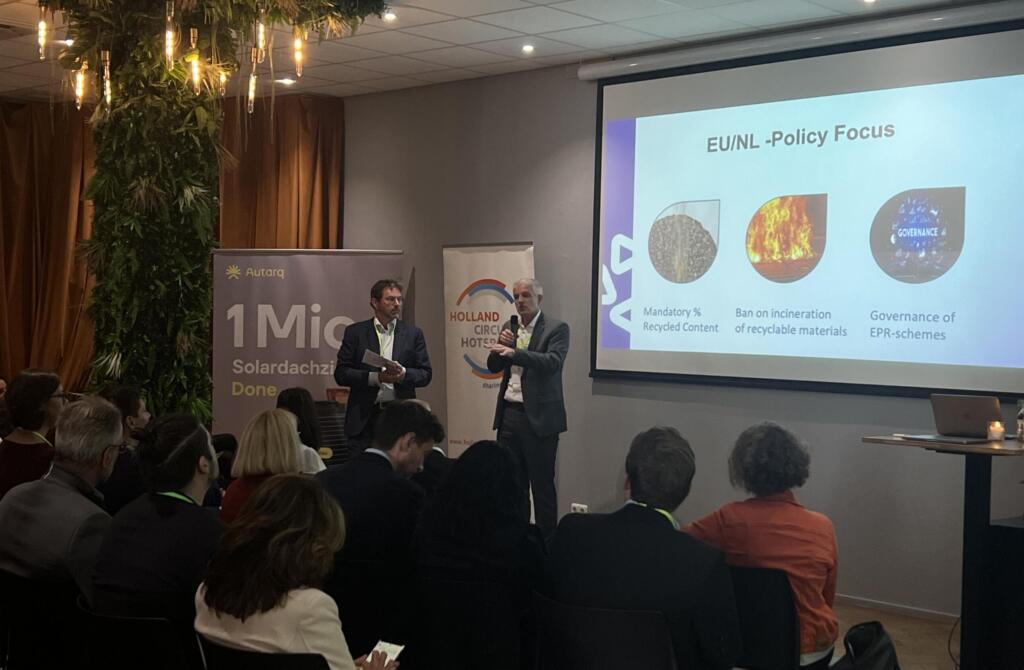
![]()
Tackling construction and demolition waste
One of the key topics addressed was managing construction and demolition (C&D) waste, representing one of the largest waste streams in both countries. Otto Friebel from BRBS Recycling spoke about the challenges and opportunities in handling this waste stream, while Dr. Anja Rosen from C5 GmbH shared Germany’s progress in implementing circular construction solutions.
The symposium also provided a platform for entrepreneurs from both nations to present their innovative circular solutions. German companies like H-Aero and PMF Housing pitched sustainable building technologies, while Dutch organisations such as Biobased Creations showcased projects featuring biobased materials, highlighting the potential of circular architecture.
Closing presentations from circular economy experts Bert Krikke of Cirkelstad and Liselore Havermans from TKI Construction and Technology stressed the importance of research and development in circular construction and the need for scalable innovations. Sabine Oberhuber, Co-Founder of Turntoo and Madaster, delivered the final keynote on business models for circular buildings and the potential of material passports to track building components throughout their lifecycle.

